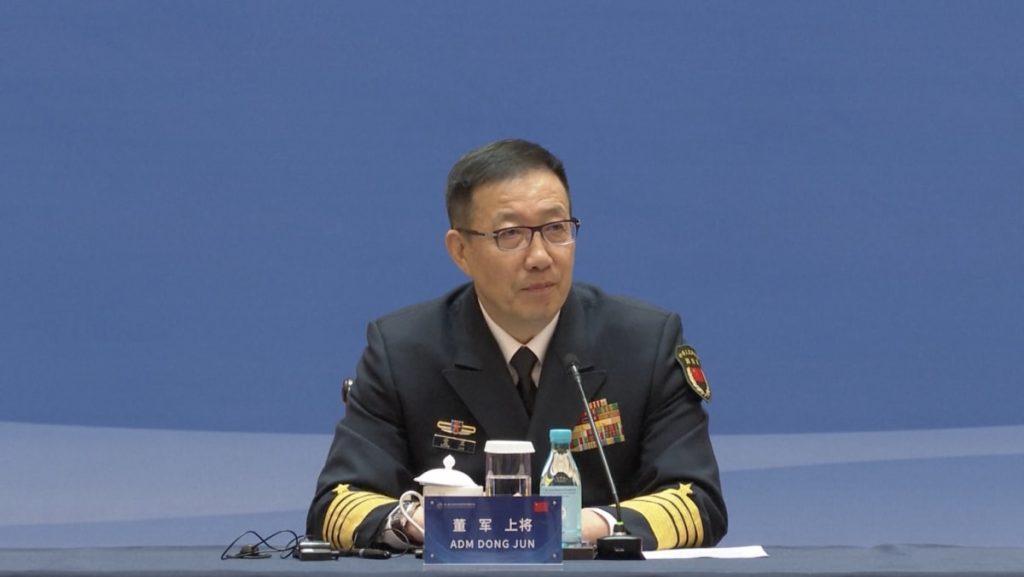The sudden disappearance and subsequent reappearance of Chinese Defence Minister General Li Shangfu, followed by the confirmed investigation into General Miao Hua, director of the Political Work Department of the Central Military Commission (CMC), has sparked intense speculation about a potential power struggle within the Chinese military and political elite. General Li’s absence from public view for weeks, particularly from key engagements like a meeting with US Defense Secretary Lloyd Austin and a visit from Singapore’s Chief of Defence Force, fuelled rumors of his possible involvement in Miao’s case. While Li’s reappearance suggests he may have weathered the immediate storm, the situation remains fluid and his long-term political future uncertain. The cryptic nature of the official pronouncements surrounding both Li and Miao contributes to the ambiguity surrounding these events.
Adding to the complexity of the situation is the distinction between the official announcements regarding Li and Miao. While Li’s absence was never officially addressed, Miao’s suspension was explicitly announced, albeit with nuanced language. The use of the term “jiancha” (inspection) rather than “diaocha” (investigation) suggests a potentially less severe outcome for Miao. Some analysts interpret this as a sign of leniency, possibly due to Miao’s close relationship with President Xi Jinping. However, others argue that the public announcement itself, coupled with the mention of a “serious violation of discipline,” signals the end of Miao’s career, regardless of the specific terminology employed.
The uncertainty surrounding Li’s position stems partly from his relatively lower standing within the power structure compared to his predecessors. Unlike them, he does not hold concurrent roles as a CMC member or state councillor, positions that would grant him direct access to President Xi and Premier Li Qiang. This lack of direct access could make him more vulnerable to political maneuvering. Furthermore, the connection between Li and Miao, with Miao having played a role in Li’s promotion, raises questions about Li’s potential involvement in Miao’s alleged transgressions. While some analysts speculate that Li may have cooperated with the investigation, potentially implicating Miao, others believe he might still be under scrutiny.
The broader implications of these events extend beyond the individuals involved, hinting at possible power dynamics within the Chinese leadership. Some observers see Miao’s downfall as a potential sign of internal opposition to Xi Jinping, while others view it as a move by Xi to consolidate his control over the military. The public nature of Miao’s suspension, regardless of its ultimate outcome, is unusual and suggests a deliberate message being sent, although the precise meaning of that message remains a subject of debate. The unfolding situation underscores the opacity of Chinese politics and the difficulty of discerning the true motivations behind such high-level personnel changes.
The evolving narrative surrounding Li and Miao highlights the challenges of interpreting political developments in China. The lack of transparency and the controlled flow of information create fertile ground for speculation and analysis, with experts offering differing interpretations of the same events. The situation also underscores the precarious nature of power within the Chinese political system, where even close allies of the president can find themselves under investigation. The ultimate resolution of these cases, and their impact on the broader political landscape, will likely remain unclear for some time, continuing to fuel speculation and analysis.
In conclusion, the ongoing saga surrounding General Li Shangfu and General Miao Hua provides a glimpse into the inner workings of Chinese power politics. The combination of public announcements and unexplained absences, coupled with the nuanced language used in official statements, creates a complex and ambiguous picture. While Li’s reappearance offers a temporary reprieve from speculation about his immediate fate, his long-term prospects remain uncertain. The investigation into Miao, and the potential implications for Li and others, will continue to be a source of intense scrutiny and analysis as observers attempt to decipher the true meaning of these events within the context of Chinese political dynamics. Only time will reveal the full extent of these developments and their impact on the balance of power within the Chinese leadership.

